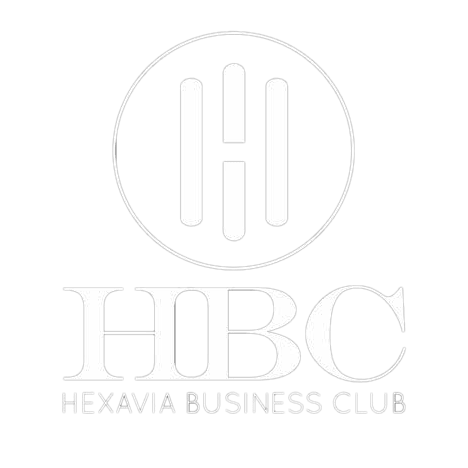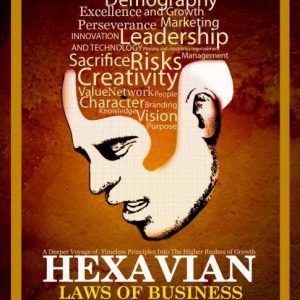Who remembers the good old high school economics as a subject? It had in it, a topic that laid the foundation to everything in business. The SS1 Economics topic was referred to as the Three Economic Questions that every business must define clearly their answer through their business model?

- What to produce?
- How to produce and?
- For whom to produce?
Once we define it, we stick to it. But to innovate is to consistently adjust at least 2/3rd of your answer at every shake up of your market and even the countries or world economy. Right now, the world has that shake up. We are about to witness the world’s first medically induced global recession in 100 years. Those shake up demands that we revisit our answers to those three questions of what to produce, how to produce and for whom to produce. Just like almost everything, there are winners and losers.
“Disruptive innovation is any improvement that creates a new market and value network and eventually disrupting an existing market.”
The biggest losers of the lockdown and pandemic includes those in any value chain or supply chain related to aviation, religious organizations (their services and churches), entertainment, transportation & their unions, sports, education, health, Non-essential retail and artisans. But to every loss, there is always a winner. The winners in this case will include dealers in the food & household items, telcos, lending, logistics and distribution, payment fintechs, streaming companies (music & films, games). But in total, to stay afloat is to reimagine the questions of what, how and for whom we produce. A type of Innovation happens when we try to answer two of the three questions differently from the industry norm. Every time the questions are answered differently, innovation happens. And if it makes the entire product and general pricing lower and cheaper, we call it disruptive innovation. In other words, disruptive innovation is any improvement that creates a new market and value network and eventually disrupting an existing market.

Post Covid, most markets will have big players losing market to lesser players. This happens as the users and customer’s search for more valuable yet cheaper alternatives. Take for example, some people who had their kids in very expensive schools may lose their jobs and then begin to find cheaper alternatives for their kids school. This will be seen in healthcare, housing and almost everything. It’s a battle of efficiency. So if you’re the cheaper alternative to those who the recession will force to make an adjustment, there is an opportunity for you. You should start by crashing your prices and by reducing your cost of production first, build a prospect list and access for them to test your service by turning what could have been premiums to freemiums. Also, as lockdown has forced digital transformation and made us seek more convenience and time saving alternatives, attempt to see how you can reduce cycle time for production, create convenience and make a digital version or product of what you do. Furthermore, make sure to create mass accessibility and affordability for what was originally expensive to most people.

A major part of disruption and reimagining your economic question is about cost saving, speed and convenience. And a variable for this is speed and efficiency. Outsourcing creates this. But a type of it is called Unbundling The Corporation Model.
“Rethink – Restrategize: Unbundling The Corporation Model”
Hagel and Singer in 1999 while observing this phenomenon referred to it as “Unbundling the Corporation”. They traced its long history to the 1978, when the company Apple launched the Apple II PC, unlocking the door for new businesses specialized in providing hardware and software components. This led to David slaying Goliath episodes, as giant corporations who were generalists began to wither. The advantages — size, reputation, integration — possessed by giant corporations were replaced the advantages – creativity, speed, flexibility – possessed by the new specialized corporations.
WHAT DOES IT MEAN?
Unbundling the Corporation stems from the philosophy that every company or industry at its core process – the cross-functional work flow that cuts across its value system – is divided into three businesses, namely; the customer relationship business, the product innovation business, and the infrastructure business (Hagel & Singer, 1999). A very good example is the Nigerian power sector, while NERC is the infrastructure side of the sector, managing the power plants, distribution companies in different regions of the country serve as the relationship side of the sector, and other companies like Conlog are responsible for the technologies (like the prepaid meters). This opportunity is created by a reduction in Interaction Costs. According to Hagel and Singer (1999), Interaction costs are the friction in the economy; they refer to time and money spent whenever people exchange goods, services and ideas. This exchange can be within organizations or among organizations, or between organizations and their customers. As external interaction costs drops, It creates opportunities for businesses to have strong relationships.

ICT has been instrumental in the reduction of interaction costs. Take for example how technology made the following happen, Bitcoin is the world’s biggest financial institution, but unlike the regular banks, it has zero cash or no branch. Uber, the world’s largest taxi company owns no taxis. Airbnb, the largest accommodation provider owns no real estate. Netflix, a world’s largest movie house owns no cinemas. Skype, the largest communication owns no physical telco infrastructure. Alibaba, world’s most valuable retailer owns no inventory. Facebook, the most popular media owner with the largest peer-to-peer information shared creates no content. Apple, the largest software vendors don’t write the apps. There seems to be a business model pattern emerging across industries and disrupting the traditional business models. That model is disruptive innovation by unbundling the regular corporation model. It’s a whirlwind and new wave we all need to learn to ride the tide.
One can only imagine what may happen with the coming of the 5G network, it might lead to more convenience, speed, reduction in cost of operations and more so, a drastic reduction in interaction costs. Hence, it will create an opportunity for more unbundled companies and disrupt others with traditional business models. There are many giants to be slain across sectors. The key questions that we must continue to ask ourselves are those coined by Peter F. Drucker (in some regard, the father of management); What is our business? What will our business be? What should our business be? These old strategic questions will guide us in staying relevant and making the right unbundling decisions.
What is our business? What will our business be? What should our business be?
The business model pattern used by companies like Uber, Airbnb, Netflix, Alibaba, Bitcoin, Facebook, Apple and Jumia is called the Unbundling the corporation. They re-imagine the “How’ of the Three Questions of Economics. They just create platforms and manage only a part of the entre value chain, the client facing part in the most lean and automated manner. The reduction in interaction costs has been key to the rise of this model. This will be the norm. This change is real and unstoppable and any sound businessperson should know that when we are no longer able to change a situation, we are challenged to change ourselves. Eat or be eaten. To evolve or dissolve, the choice is yours.

Eizu, ©Hexavia!
Strategy. Business StartUps and Corporate Restructuring Consulting
T: 08035202891
Uwaoma Eizu is the lead strategist at Hexavia! He is a graduate of Mathematics with two MBAs and over a decade of experience working with startups and big businesses. His core is in building startups and in corporate restructuring. He is also a certified member of the Nigerian Institute of Management, Institute of Strategic Management of Nigeria and the Project Management Institute, USA. By the side, he writes weekly for the BusinessDay newspaper.






